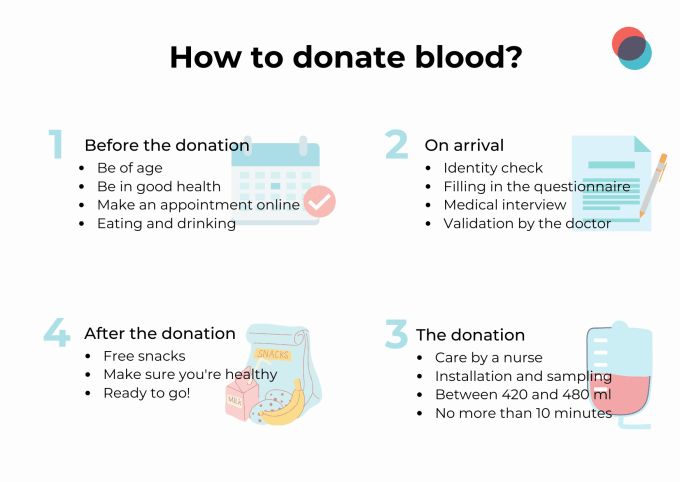Blood donation: why and how to give?
June 07th, 2022, by Labtoo's team
Why is blood donation important?
Blood donations are the easiest way you can help patients in need of blood transfusion. Those donations can be needed in multiples cases such as lose of blood in an accident, giving birth or in case of surgeries.

But blood donations can also have a positive effect on the donor. Indeed, donating blood can decrease levels of iron, cholesterol, and triglycerides and can have emotional benefits from helping another person with your own blood.
What is the blood donation process like?
To give blood in France, certain basic conditions must be met.
First of all, the donor must be in good health, weigh more than 50kg and be at least 18 years old. Before giving blood, the donor must make an appointment at the blood donation center of their choice and ensure that they have eaten and drunk enough water before the appointment.
When the donor arrives, their identity is checked and they are given a questionnaire to collect all the information needed to donate.
Once the questionnaire has been completed, the donor is called in for a quick medical examination. If the doctor or nurse declares the donor healthy, the donation can begin.
The donor will be placed in a slightly supine position and the nurse will then draw 420-480 mL of blood. The collection takes an average of ten minutes.
The last step after the blood collection is the free snack and drinks. This can help to reduce the donor's stress.
And that's it! Blood levels quickly return to normal, but it is advisable not to engage in any form of physical activity for a few hours after a donation.
What is the state of play in research to overcome the blood shortage?
Biotech can play its part in developing bioproducts to replace blood. The complexity of blood, particularly because it contains several cell types and numerous constituents, makes the development of blood alternatives particularly difficult, despite the financial and medical stakes.
For more information on current projects: visit our friends at Scispot and the article on biotechs developing blood products.
And for researchers looking for blood samples from healthy donors or patients, check our service for biological samples sourcing.